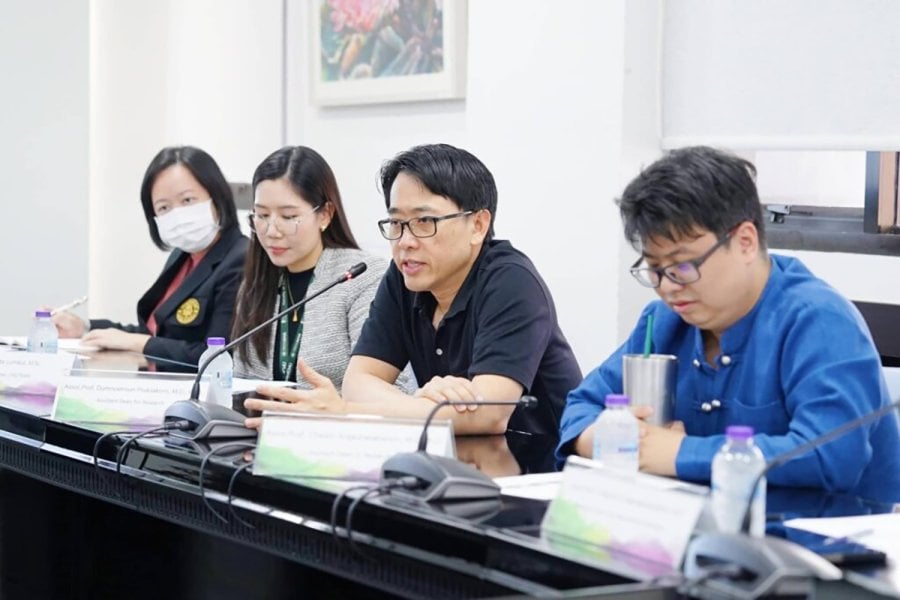
The London School of Hygiene & Tropical Medicine (LSHTM) will contribute to a global project with Queen Mary University of London, Chiang Mai University, and Thailand's Ministry of Public Health to trial a new approach to disease management.
The UK-Thai team will implement a 'Learning Health System' (LHS) in Thailand. This approach uses patient data to help primary care doctors identify people with high blood pressure (hypertension) or diabetes, and/or with high risk of kidney disease or and improve their treatment. The Clinical Effectiveness Group (CEG) at Queen Mary, which has refined this method over 30 years with NHS North East London, will share their expertise globally through this initiative. The collaboration which underpins this grant started several years ago at LSHTM.
The World Health Organization estimates that effective hypertension control in Thailand over five years could prevent over 14,000 deaths, 27,000 strokes, and 18,000 heart attacks. Key components include software tools, performance dashboards, and training for doctors to proactively manage and prevent disease progression. The project will pilot this approach in 16 primary care practices in Thailand, assessing its impact before a nationwide rollout.
Chronic conditions such as diabetes and chronic kidney disease are major health challenges in Thailand. Of the 13.2 million people with hypertension, less than one-third have their blood pressure under control. The LHS aims to significantly improve management and outcomes in these areas.
In LHS, local health providers use their own routine patient care data to drive ongoing improvements in population health. Thailand’s Ministry of Public Health already uses electronic health records for regional care analysis, but frontline health workers lack accessible, actionable insights. The Learning Health System will bridge this gap, helping local primary care teams to use their own routinely collected data to enhance patient care.
Dorothea Nitsch, Professor of Clinical Epidemiology at LSHTM, said:
“I am absolutely delighted that we can do this exciting work together, and test whether a CEG style learning health system is something that can be used around the world to address hypertension, diabetes and chronic kidney disease.
“As a kidney doctor looking after people just before they need to start dialysis, I see some patients who over the previous 10–20-year period had missed opportunities to improve their kidney and cardiovascular health. I always wondered whether a learning health system approach could protect a population against the consequences of chronic kidney disease. This study will provide data in the longer term as to whether that is the case or not.”
Rohini Mathur, Epidemiologist and Professor of Health Data Science at Queen Mary, said:
“The programme combines CEG’s experience in delivering Learning Health Systems with the local leadership and expertise of our partners in Thailand. Together we will target specific disease areas where we know an intervention can make a huge difference to health equity and outcomes for the Thai population.
“Thailand has invested heavily in its primary health care system and the technologies to capture data about clinical care. We are excited to be working with colleagues in Thailand to close the loop and use health data for the benefit of patients.”
Chaisiri Angkurawaranon, Associate Professor and Head of the Global Health Research Centre at Chiang Mai University, said:
“Collaborating with international experts allows us to leverage global knowledge and tailor it to our local context. This partnership will not only enhance our capacity to address chronic diseases like hypertension and diabetes but also improve the overall health system in Thailand.
“We are committed to making a tangible impact on patient outcomes through data-driven interventions. This collaboration represents a significant step towards using health data effectively to benefit patients.”
This collaboration first began at LSHTM when both Rohini and Chaisiri were doing their PhD. They have built vital links between CEG and the Thai team to drive forward this equitable partnership.
The four-year project will include workshops involving Thai healthcare providers, researchers, and the public to identify challenges and opportunities in managing hypertension, diabetes, and kidney disease. Community champions, including professionals and public members, will play a crucial role throughout the project’s design and implementation.
The project will also train local PhD students, researchers, and healthcare teams to sustain the LHS, ensuring long-term improvements in patient care and population health. Results from the pilot will be disseminated globally, potentially leading to widespread adoption of LHS in Thailand and other Southeast Asian countries.
Funding of £2.2m for the initiative comes from the National Institute for Health and Care Research (NIHR) Global Health Research Groups programme, with additional support from the British Council.
This story was adapted from the Queen Mary University of London press release.
If you enjoyed this article and would like to build a career in global health, we offer a range of MSc programmes covering health and data, infectious and tropical diseases, population health, and public health and policy.
Available on campus or online, including flexible study that works around your work and home life, be part of a global community at the UK's no.1 public health university.
